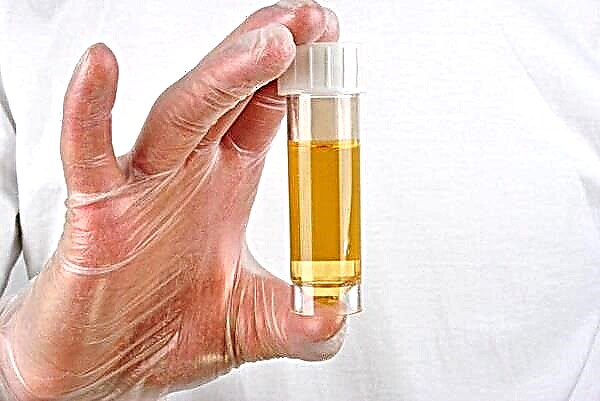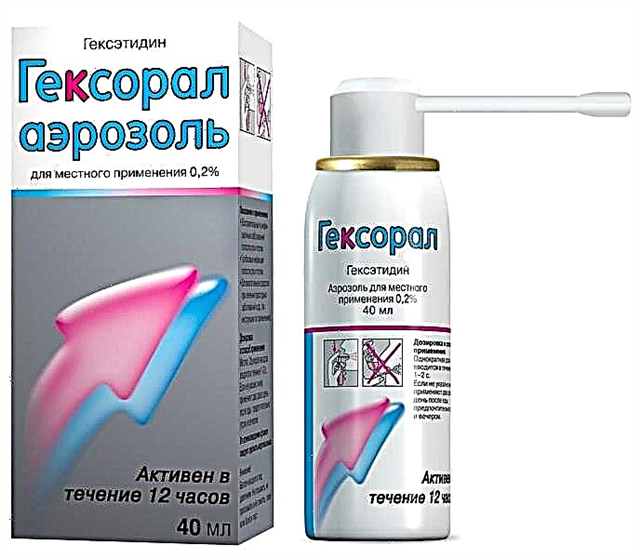The appearance and health of teeth are influenced by heredity, dietary habits and oral hygiene habits. Not every parent knows for sure when to start brushing a baby's teeth.

Baby's teeth
The importance of caring for baby teeth
Milk teeth are similar in structure to permanent teeth, but are characterized by some features:
- low crowns,
- large gaps between crowns,
- thin (1 mm) enamel,
- wide channels,
- long thin roots.
Sometimes parents consider it unnecessary to take care of milk teeth and postpone the moment when a child should start brushing his teeth until three or even four years old. The accumulation of food debris and the formation of dental plaque in children occurs in the same way as in adults; weak enamel is more quickly exposed to negative effects and is affected by caries. A carious tooth is a source of infection that affects the entire body of the baby and provokes various ailments, including sore throat and pyelonephritis. Sick teeth interfere with quality chewing of food, which provokes problems with the digestive system. Launched caries leads to premature loss of the milk tooth, as well as to the defeat of the permanent tooth rudiments located at the roots.

Damage to milk teeth
Important! Untimely removal of a milk tooth entails the formation of an incorrect bite, curvature of permanent teeth, provokes a violation of the pronunciation of sounds.
From the age of three, after the eruption of all 20 milk teeth, children regularly (once every six months) visit the dentist. The doctor checks the condition of the teeth and gums, gives individual recommendations for the care of teeth.
Brushing teeth for a child under one year old
On the advice of experts, they start cleaning milk teeth from the moment they erupt. According to the recommendations, the oral cavity and gums of the newborn are monitored from the first weeks of life, especially if the child is bottle-fed. Parents gently cleanse the gums after each feeding with a gauze pad moistened with warm boiled water. To moisten the tampon, use herbal infusions:
- chamomile (relieves irritation of the mucous membranes),
- sage (has bactericidal properties),
- St. John's wort (strengthens the gums),
- calendula (has anti-inflammatory effect).
Important! In order to avoid allergic reactions, the treatment of the oral cavity with herbal infusions is carried out no more than 3 times a week, which corresponds to the norm.

Cleaning the baby's mouth
Not all parents know how to properly clean the first teeth of a baby. Dentists recommend cleaning your teeth from the moment they appear.

Baby teeth brushing
Up to 6 months of life, the baby's oral cavity is cleaned:
- a gauze swab (a cotton swab is undesirable, since it has no roughness and leaves fibers),
- finger napkins "Zubkichistki" with xylitol (recommended for children from birth to 6 years old),
- special dental wipes.
To look after the teeth and oral cavity of a baby from six months to one year of age, they most often use:
- silicone finger brushes on the finger,
- age-labeled silicone brushes;
- soft children's toothbrushes equipped with a comfortable handle and a cleaning surface for two children's teeth;
- specialized dental wipes.
Principles of brushing teeth for a one-year-old child
From an early age, adults teach the baby to take care of the oral cavity. At 3-7 months, the baby experiences unpleasant sensations associated with teething. During this period, special finger silicone nozzles are used to massage and clean the gums, tongue, and cheeks. To eliminate the discomfort from teething, special ointments and gels are used.
In the period from 7 to 18 months, it is imperative to thoroughly get rid of dental plaque, thus protecting the teeth from creating favorable conditions for the reproduction of harmful microorganisms.
Irregular and poor-quality care for the oral cavity of a baby under one year old provokes the formation of Priestley's plaque.
Plaque build-up is not always associated with poor oral care. Sometimes this indicates that:
- choosing the wrong toothpaste;
- the child sucks on an empty bottle for a long time;
- drugs are taken for a long time;
- disrupted spleen function;
- there are violations in the digestive tract;
- possible infection with helminths.
Self-care teeth
A two-year-old is already good at holding and manipulating a toothbrush. It is from this age that he is gradually taught to self-care for his teeth. The best teaching method is parenting. Children always imitate adults, so joint visits to the bathroom in the morning and evening will show the baby the algorithm of actions.
Remember! At this age, the child only imitates brushing his teeth. Adults are sure to control the procedure and correct the shortcomings.
Frequency of brushing teeth in children
Like adults, babies are advised to brush their teeth twice a day after meals. The procedure takes at least 2 minutes. Too long cleaning process is fraught with mechanical damage. In order for the baby to navigate in time, they select the appropriate song, turn on the timer or set an hourglass. In the morning, they thoroughly brush their teeth (it is possible even before meals), after breakfast, rinse the mouth with warm water.
Attention! Dental rinses are recommended for children who already know how to rinse their mouth and do not swallow liquid.
Do not use the brush after every meal. Brushing your teeth too often leads to:
- desiccation of the mucous membrane;
- irritation and damage to mucous membranes;
- violation of healthy microflora in the oral cavity.
Attention! Experts do not recommend brushing your teeth immediately after eating foods with high acidity (lemons, apples, freshly squeezed juice). First, the microflora naturally regenerates within 30-40 minutes.
They brush their teeth twice a day and very carefully, as the baby's gums are painful at this time. In no case do they refuse to manipulate, even if the baby is dissatisfied with the process - the accumulating bacteria damage not only the teeth and oral cavity, but also the whole body.
Incorrect teeth cleaning technique leads to negative consequences.
Rules for cleaning the first teeth:
- cleaning movements are made in the direction from the root to the top;
- to process the chewing surface of the tooth, a finger with a silicone pad is placed horizontally and longitudinal translational movements are used;
- the inner surface of the tooth is carefully cleaned with quick and short movements;
- clean out the lateral teeth using circular motions.
Important! Be sure to do at least 10 manipulations for each crown. You need to clean your teeth, gums, cheeks, tongue.

Baby teeth brushing
With high-quality oral care from infancy, parents contribute to the formation of a correct bite, prevent various diseases of the oral cavity (including caries).
Choosing a children's toothbrush
Parents choose the toothbrush properly, thereby creating an opportunity for proper oral care.
What people usually pay attention to when choosing a toothbrush for a baby:
- For labeling by age. Dentists do not recommend baby brushes with markings from 1 to 7 years. There are other age groups:
- children under 1 year old (finger brushes, brushes with silicone bristles, dental wipes),
- children from one to two years old (head - 1.5 cm, handle - 10 cm),
- from 2 to 5 years old (head - 2 cm, handle - up to 15 cm),
- from 5 to 7 years old (head - 2-2.5 cm, handle - 16-17 cm).
- For rigidity. Brushes are available in soft, medium and hard. Some manufacturers claim ultra hardness and ultra softness.
- Soft and ultra soft brushes are bought for babies with delicate gums prone to bleeding;
- Hard and ultra hard brushes are recommended for healthy gums and strong teeth;
- A medium-hard bristle is well suited for children whose parents doubt the ideal condition of the child's teeth.
- On the stubble. The brushes are available with natural and synthetic bristles. When choosing a brush, they are not guided by the principle: "Natural is the best." According to the recommendations of dentists, parents purchase brushes with artificial bristles for children. They are more durable, not brittle, and prevent the reproduction of harmful microorganisms. Only silicone bristles are recommended for babies under one year old.
Note! Developers widely advertise children's toothbrushes with natural bamboo bristles, which have a long service life. But such accessories are not used for more than 3 months, as they become a source of mold and mildew spread.
- On the structure of the handle. It has a bend in front of the head, on the structure itself there are silicone inserts.
- On the head design. As a rule, choose the one with a streamlined shape, one-sided or double-sided bristles.
- Design. They stop their choice on a brush that the baby will surely like, or choose with him.
Important! For safety reasons, experts do not recommend using electronic toothbrushes for children under 4-5 years old.
Requirements for the operation of toothbrushes:
- brushes are not exposed to high temperatures (boiling or pouring hot water);
- always wash the brush with soapy water before and after the hygiene procedure;
- for storage, the brush is placed in a cup with bristles upside down;
- replace the brushes at least once every three months.
The main dental care products are brush and toothpaste.
Note! There is always the possibility that the child will swallow some of the paste. Therefore, fluoride-free toothpaste is selected for young children. As the child grows and learns sanitary and hygienic skills, they acquire a paste with the appropriate age marking.
Dental care products
In infancy, finger tips and dental wipes are used for oral hygiene.
Important! Doctors do not recommend the constant use of napkins exclusively.
Finger tips are available in silicone and latex and have a fleecy or ribbed part. Usually, parents choose the right one in accordance with their own taste and preferences of the child.
Some manufacturers produce a foam for cleaning the mouth, which contains harmless lactic enzymes and air bubbles. The components help to gently and effectively clean the teeth and oral cavity. The foam is harmless if swallowed, suitable for use for a period of zero to two years.
Important! Teething gels can be dangerous for crumbs, as they contain icecaine.
Toothbrush and toothpaste are essential oral hygiene products. In addition to the main ones, additional ones are also produced:
- dental floss (floss),
- balm,
- rinse aid,
- chewing gum,
- brush,
- special toothbrush.
Attention! Dentists recommend flossing for children over 7 years old.

Joint oral hygiene
Fascinating tooth brushing
A 2-year-old toddler adequately perceives and evaluates information. He realizes why he is brought to the bathroom twice a day and given a toothbrush. At first, the baby with interest repeats the movements of the parents, but this quickly passes, because there are many other activities that are more attractive than boring brushing. If persuasion and regular personal example do not bring the desired result, they resort to some parenting tricks:
- They bring variety to the routine process. Reading poetry, telling fairy tales, singing songs, having fun in the company of various toys will add zest to the procedure. If the little one is interested in the game, then the next time the hygiene procedure will start without reminders.
- Pick up a brush and paste together with the child. Stores offer a wide range of baby dental care products. The kid will love the independent process of choosing bright accessories and delicious pasta.
- Introduce elements of competition into the joint oral care process. Children love to beat adults.
- Encourage the baby very carefully. If adults give out a prize after each procedure, then very soon the baby gets used to it and does not act without encouragement. Parents in other ways instill in the child the understanding that brushing your teeth is required without daily gifts.

Play and oral care
Note! According to the advice of psychologists, the kid is not punished if he refuses to brush his teeth. Parents interest the baby in the procedure, and do not instill a fear of punishment.



